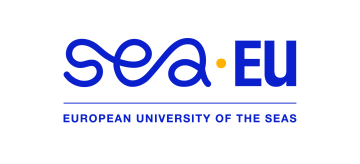Graduate (1977) and Doctor in Chemistry (1982) from the University of Seville. Full professor of Chemical Engineering at the University of Cadiz since 1997.
Professor of Applied Thermodynamics and Chemical Kinetics, Basic Separation Operations, Design of Separation Operations and Petroleum and Petrochemical Technology, of the Chemical Engineering Degree. In possession of six five-year teaching posts.
Responsible for the research group Analysis and design of processes with supercritical fluids, TEP-128 in the catalogue of the Andalusian Research Plan (PAIDI), and expert in thermodynamics of the equilibrium of phases at high pressure, supercritical extraction of natural substances and development of hydrothermal processes at high pressure for the elimination of toxic and dangerous waste.
Author of 196 research articles, 4 books, 15 book chapters and 295 communications to national and international congresses, researcher in 31 R&D projects (12 as Principal Researcher) and 43 contracts with companies (18 as scientific manager) and co-author and 9 patents granted (two exploited by companies). In possession of six six-year research contracts.
Director of the Department of Chemical Engineering for three periods (1997-99, 2001-04 and 2012-18), member of the Governing Board of the UCA (1996-2001) and of its Complaints Committee (1998-2001), Coordinator (1994-96) and Rapporteur (2000-02) of Chemistry for University Entrance Exams (PAU) and Scientific Coordinator of Company Chairs (2006-2009). In possession of five sections of the Andalusian regional complement.
- Purification of industrial wastes by oxidation in sub- and supercritical water.
Application of high pressure processes, including both Chemical Reactors and Separation Operations, using Supercritical Fluids (FSC), in any field of Chemical and Process Engineering. Among them:
1) Extraction processes that use FSC as solvents to obtain components of interest (industrial, agri-food, pharmaceutical, etc.) from any raw material, solid or liquid, in an efficient manner, without solvent residues in the final product and without altering its natural qualities. Examples of PM (and products obtained): pomace (anthocyanins, lycopene, resveratrol), grape seed (oil), borage (oil), sunflower (herbicides and oil), wheat germ (oil, tocopherols), soya (oil), microalgae (chlorophyll, carotenes), etc.
2) Precipitation/Impregnation processes, to obtain solid materials in powder form, with particles of micro- and nano-metric size and with controlled geometry and size distribution, by precipitation with an FSC. Of special interest to the agro-food and pharmaceutical industry for the production of additives, aromas, colorants or drugs, with controlled absorption (anthocyanins, carotenes, amoxicillin, ampicillin, etc.) Encapsulation of these particles in biocompatible polymers.
3) Hydrothermal Oxidation/Gasification processes for the treatment (purification) of industrial discharges and toxic or hazardous waste by means of their complete oxidation/gasification in an FSC. This technology is useful for treating any organic waste or spillage: used oils, sewage sludge, vinasse, drilling emulsions, hospital waste, etc.
Production of submicron particles of the antioxidants of mango leaves/PVP by supercritical antisolvent extraction process
Guamán-Balcázar, M.C., Montes, A., Pereyra, C., Martínez de la Ossa, E
Journal of Supercritical Fluids (2019) Vol: 143. Pgs: 294-304
Double-shelled SCWO reactor designed for energy production: operation and modelling
Jose M. Benjumea, Jezabel Sánchez Oneto, Juan R. Portela, Enrique J. Martínez de la Ossa
Journal of Supercritical Fluids, 141: 230-239 (2018).
Generation of Microparticles of Ellagic Acid by Supercritical Antisolvent Process.
Antonio Montes, L. Wehner, Clara Pereyra, Enrique J. Martínez de la Ossa
Journal of Supercritical Fluids, 116:101-110 (2016).
Green extraction of Antioxidants from different varieties of Red Grape Pomace”.
María J. Otero, Lourdes Casas, María T. Fernández, Casimiro Mantell, Enrique J. Martínez de la Ossa
Molecules, 20(6):9686-9702 (2015).
Production of submicron particles of the antioxidants of mango leaves/PVP by SAE process.
María C. Guamán, Antonio Montes, Clara Pereyra, EnriqueJ. Martínez de la Ossa
Journal of Supercritical Fluids, 143:294-304 (2019).
